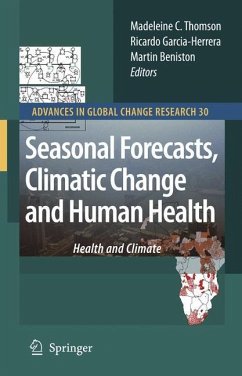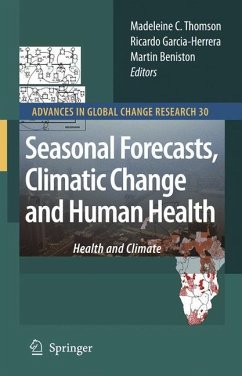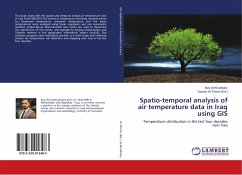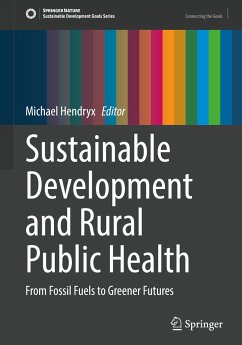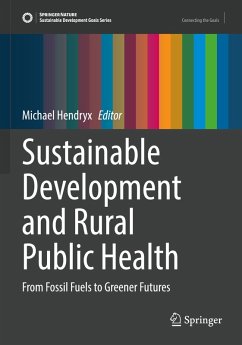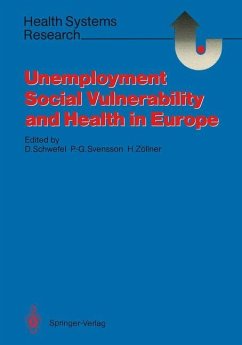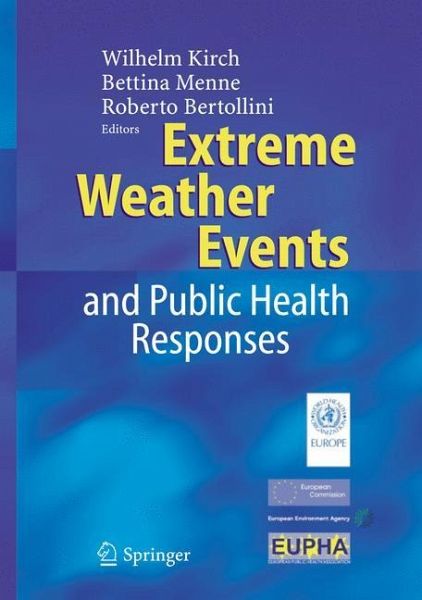
Extreme Weather Events and Public Health Responses

PAYBACK Punkte
39 °P sammeln!
The global climate is changing. The trend towards warmer average surface temperatures for the period since 1976 is roughly three times that of the past 100 years as a whole. In recent years warming seems to be attributable to human activities (man-made environmental changes) like land-use changes, deforestation, urbanisation and the reduction of wetlands. Global climate change is likely to be accompanied by an increase in frequency and intensity of extreme weather events. This brings with it increased health risks and hence a demand for an adequate response from local health authorities to meet these risks.
In 2004, the WHO Regional Office for Europe and the European Environment Agency organized an expert meeting to exchange information and develop recommendations on public health and environmental responses to weather and climate extremes, floods, heat-waves and cold spells.
This book reflects a collection of case studies and experiences of experts, ministries and international organizations.
In 2004, the WHO Regional Office for Europe and the European Environment Agency organized an expert meeting to exchange information and develop recommendations on public health and environmental responses to weather and climate extremes, floods, heat-waves and cold spells.
This book reflects a collection of case studies and experiences of experts, ministries and international organizations.
In February 2004, the WHO Regional Office for Europe and the European Environment Agency organized an expert meeting to exchange information and develop recommendations on public health and environmental responses to weather and climate extremes, floods, heat-waves and cold spells. The meeting was kindly hosted by the Ministry of Health of Slovakia. The meeting recommendations were adopted at the Fourth Ministerial Conference on Environment and Health, Budapest, Hungary, 2004.
This book reflects a collection of case studies and experiences of experts, ministries and international organizations. It gives an overview of various topics, such as:
- Will climate change alter climate variability?
- The 2003 European heat-wave
- The health impacts of temperature extremes
- Public health responses to temperature extremes
- The health impacts of floods
- Case studies on health system responses to extreme events
This book reflects a collection of case studies and experiences of experts, ministries and international organizations. It gives an overview of various topics, such as:
- Will climate change alter climate variability?
- The 2003 European heat-wave
- The health impacts of temperature extremes
- Public health responses to temperature extremes
- The health impacts of floods
- Case studies on health system responses to extreme events



